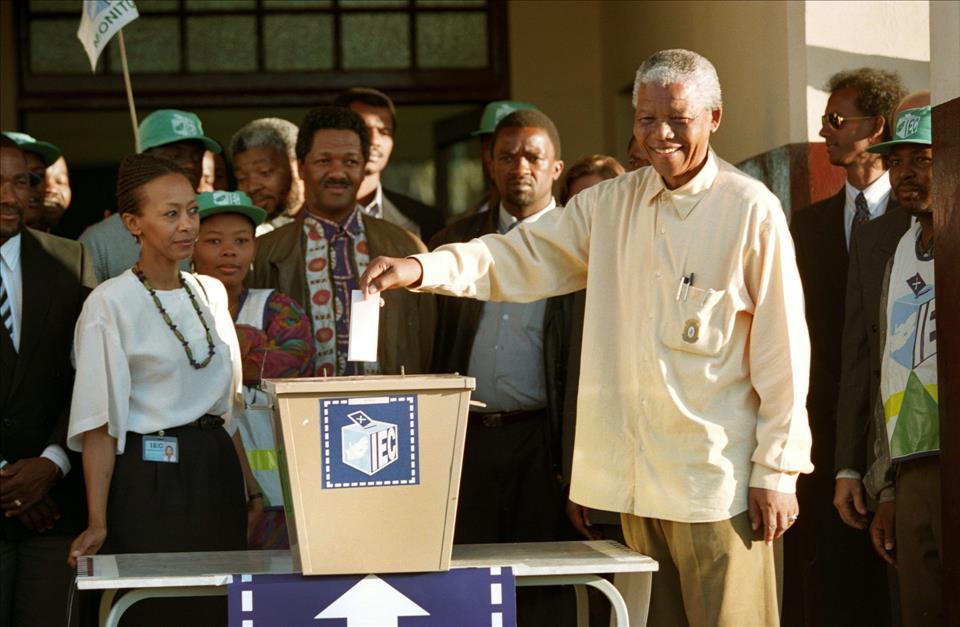
After The Euphoria Of Nelson Mandela's Election, What Happened Next? Podcast
To mark 30 years since South Africa's post-apartheid transition began, The Conversation Weekly podcast is running a special three-part podcast series, What happened to Nelson Mandela's South Africa?
In the first episode, two scholars who experienced the transition at first hand reflect on the initial excitement around Mandela's election, the priorities of his African National Congress (ANC) in the transition and the challenges that lay ahead for South Africa as it set out to define its post-apartheid future.
In the months leading up to South Africa's 1994 elections, Steven Friedman was seconded to work in the monitoring division of the Independent Electoral Commission. It was a tense period, he remembers:
The Inkatha Freedom Party didn't storm the building, but there was a lot of pre-election violence and an estimated 20,000 people were killed .
Today, Friedman is a professor of political studies at the University of Johannesburg and an expert in South Africa's political transition. In his work, he's argued that the role of the ANC in overthrowing apartheid has been overblown.
Friedman says it's“easy to romanticise” Mandela, but he stresses he was hugely important in the transition.
A new kind of securityOne of the biggest challenges facing the new ANC-led government after 1994 was reform of the security services, which had enforced the brutal apartheid regime under a highly militarised state. Sandy Africa, an associate professor of political sciences at the University of Pretoria, explains that“violence had been so integral to upholding the apartheid system.” A former student activist and ANC member, Africa was brought into the new ANC administration as head of a training facility called the Intelligence Academy.
Africa says that there were real fears that the security forces would reject the changes.“If there was going to be a coup from any quarter, it would have been from that quarter,” she says, but in the end“the enlightened forces prevailed”.
Listen to interviews with Steven Friedman and Sandy Africa on The Conversation Weekly in the first episode of our What happened to Nelson Mandela's South Africa? series.
A transcript of this episode will be available shortly.
Disclosure statementSteven Friedman and Sandy Africa do not work for, consult, own shares in or receive funding from any company or organisation that would benefit from this article, and have disclosed no relevant affiliations beyond their academic appointment.
CreditsNewsclips in this episode from SA BC News and AP News .
Special thanks for this series to Gary Oberholzer, Jabulani Sikhakhane, Caroline Southey and Moina Spooner at The Conversation Africa. This episode of The Conversation Weekly was written and produced by Mend Mariwany, with production assistance from Katie Flood. Gemma Ware is the executive producer. Sound design was by Eloise Stevens, and our theme music is by Neeta Sarl. Stephen Khan is our global executive editor, Alice Mason runs our social media and Soraya Nandy does our transcripts.
You can find us on Instagram at theconversationdotcom or contact the podcast team directly via email . You can also subscribe to The Conversation's free daily email here .
Listen to The Conversation Weekly via any of the apps listed above, download it directly via our RSS feed or find out how else to listen here .

Legal Disclaimer:
MENAFN provides the
information “as is” without warranty of any kind. We do not accept
any responsibility or liability for the accuracy, content, images,
videos, licenses, completeness, legality, or reliability of the information
contained in this article. If you have any complaints or copyright
issues related to this article, kindly contact the provider above.

















Comments
No comment